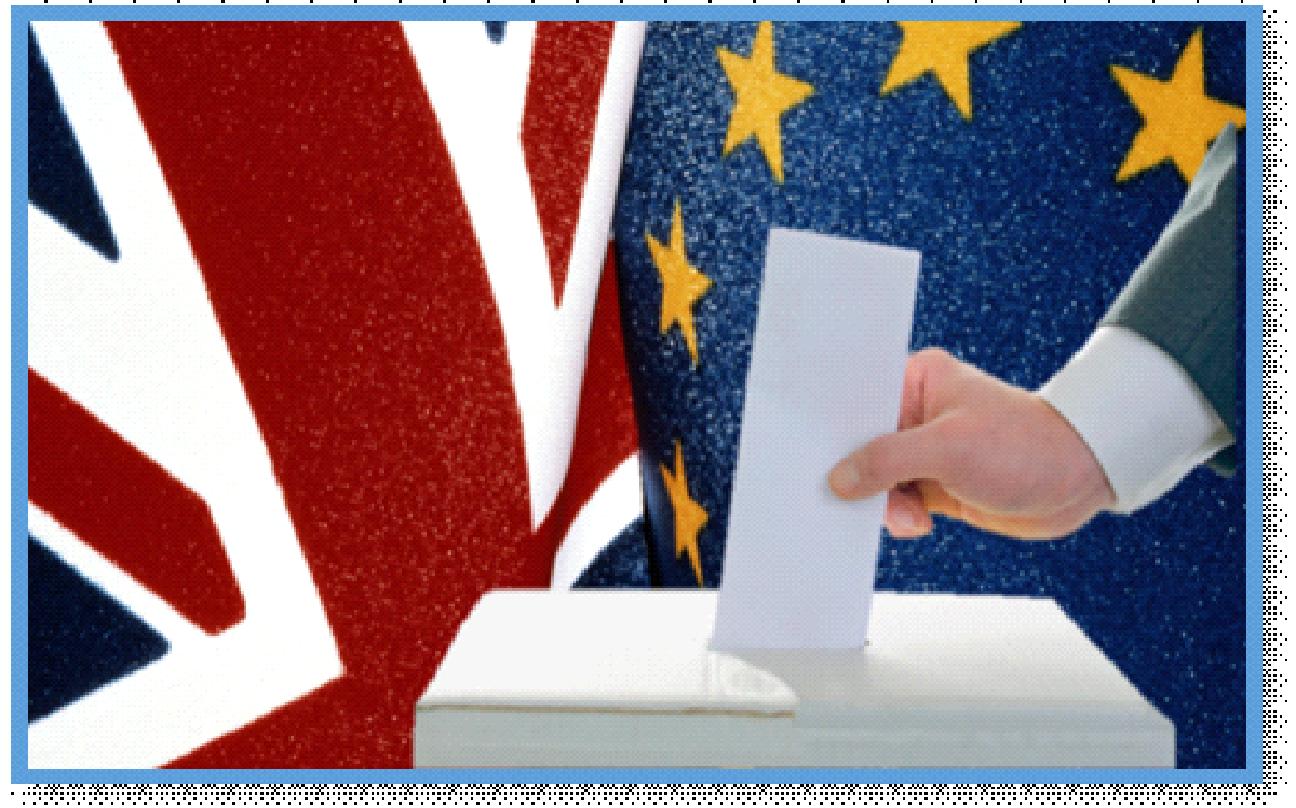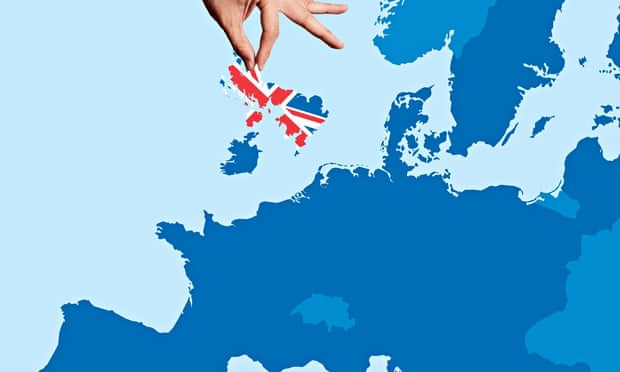By Syed Qamar Afzal Rizvi.
UK’s former Prime Minister Sir John Major has launched a scathing attack on the Leave campaign accusing it of misleading people.
A supporter of remaining in Europe, Major accused the Leave campaign of being “dishonest” and “verging on the squalid”.
“I’m not prepared to give the benefit of the doubt [to the Leave campaign]… this is a deceitful campaign,” he said appearing on the BBC’s Andrew Marr Show on Sunday morning.
Research from the Economist Intelligence Unit forecasts that in the first instance there will be tumultuous financial market volatility, followed by a “swift impact on the real economy with households and businesses reining in their spending until the dust settles”.
The research joins the likes of the Treasury, International Monetary Fund and Bank of England in predicting a negative economic shock from a Brexit vote.
Specifically, there would be a sell-off in UK assets and a depreciation of the pound, with yields increasing, consumer confidence slumping and companies delaying investment and hiring decisions.
In January and February as David Cameron sought an agreement with other European Union leaders to change the terms of Britain’s membership. He says the deal, which will take effect immediately if the UK votes to remain in the EU, gives Britain “special” status within the 28 nation club, and will help sort out some of the things British people say they don’t like about the EU, such as high levels of immigration and giving up the ability to run our own affairs.
Why the Brexit?
The proponents of the Brexit believe Britain is being held back by the EU, which they say imposes too many rules on business and charges billions of pounds a year in membership fees for little in return. They also want Britain to take back full control of its borders and reduce the number of people coming here to work. One of the main principles of EU membership is “free movement”, which means you don’t need to get a visa to go and live in another EU country. They also object to the idea of “ever closer union” and what they see as moves towards the creation of a “United States of Europe”.
For Eurosceptics, ‘ever closer union’ threatens Britain’s sovereignty, democracy and allows immigration to pressure its social unity, meaning Britain’s security and stability would be better preserved by leaving. But Britain’s departure could allow the EU to further unite. One of Britain’s longest standing international aims has been to prevent any single power dominating Europe. The EU would be a benign power compared to previous attempts, but such an outcome warrants careful consideration.
Significantly, if the first concern of any state is its own survival then the referendum could tear the UK apart. The immediate concern is Scotland: a vote by the rest of the UK to leave the EU while the Scots vote to stay could trigger another independence referendum. This would lead to an avalanche of political, economic and social costs to say nothing of the costs for UK defence and national security, most notably over Trident. Northern Ireland might seem peaceful from the perspective of the UK mainland, but the peace process is under constant pressure and a Brexit could test it to breaking point. A descent into violence in the province should not be overlooked.
Brexit could also add to tensions within England. In focusing on Scotland we have overlooked that the part of the UK that is increasingly different is London. An international metropolis that doubles as the UK and England’s capital, London has thrived from immigration, Europe and globalisation, much to the chagrin of some elsewhere in England and Britain who feel they have been left behind.
Why retaining the EU membership?
Those campaigning for Britain to stay in the EU say it gets a big boost from membership – it makes selling things to other EU countries easier and, they argue, the flow of immigrants, most of whom are young and keen to work, fuels economic growth and helps pay for public services. They also believe Britain’s status in the world would be damaged by leaving and that we are more secure as part of the 28 nation club, rather than going it alone.
The campaign UK- stronger Europe
The main cross-party group campaigning for Britain to remain in the EU is headed by former Marks and Spencer chairman Lord Rose. It is backed by key figures from the Conservative Party, including prime minister David Cameron and Chancellor George Osborne, most Labour MPs, including party leader Jeremy Corbyn and Alan Johnson, who is running the Labour In for Britain campaign, the Lib Dems, Plaid Cymru, the Alliance party and the SDLP in Northern Ireland, and the Green Party
Vote Leave – A cross-party campaign that has the backing of senior Conservatives such as Michael Gove and Boris Johnson plus a handful of Labour MPs, including Gisela Stuart and Graham Stringer, and UKIP’s Douglas Carswell and Suzanne Evans, and the DUP in Northern Ireland. Former Tory chancellor Lord Lawson and SDP founder Lord Owen are also involved. It has a string of affiliated groups such as Farmers for Britain, Muslims for Britain and Out and Proud, a gay anti-EU group, aimed at building support in different communities.
The impact on the transatlantic relations?
A British exit from the EU would add to growing strains on the United States’ relations with Britain and the rest of Europe, but by itself would not lead to a breakdown in transatlantic relations due to the scale of shared ideas and interests, institutional links, international pressures and commitments by individual leaders. It would, however, add to pressures on the US that could change the direction of the transatlantic relationship. From the perspective of Washington, Britain risks becoming an awkward inbetweener, beholden more than ever before to a wider transatlantic relationship where the US and EU are navigating the challenges of an emerging multipolar world.
The geometry of EU-UK relationship
European integration has long had a security side to it whether as Franco-German reconciliation or integrating former Communist states in Eastern Europe. To what extent the EU has itself been able to keep the peace is open to debate. Nevertheless, for post-war prime ministers such as Harold Macmillan, Britain’s ability to shape the world around it was declining as rapidly as its economic base. Joining the then European Economic Community was, in part, a step forward for the security and stability of a country that had recently ended its retreat from empire and was struggling internally and externally to find a place in the world.
Support for membership amongst Conservative MPs in the 1970s was driven by hopes that EEC membership would lock Britain into a capitalist, free market club allowing the country to shed its ‘sick man of Europe’ label, a reason some on the left resisted membership. Membership would also enhance Western European unity in the face of a still formidable Communist world, Saigon having fallen to North Vietnam only a month before the 1975 referendum.
Today, EU membership still means a lot to Britain’s national security. As the UK’s Strategic Defence and Security Review showed, Britain’s own economic and military capabilities remain substantial, but being able to draw on the EU as a force multiplier has become increasingly central as they have been stretched to their limits. For David Hannay, the EU allows Britain to better manage challenges as diverse as a newly assertive Russia through to climate change and instability in the Middle East. Working through the EU is not without its flaws, but other options for Britain to pursue its interests such as by rebuilding the Commonwealth, developing the ‘Anglosphere’, joining NAFTA, or becoming a ‘Switzerland with nukes’, are either limited or overplayed.
Leaders from around Europe and the world have regularly cast doubts on whether a Brexit will boost Britain’s international standing and security. Eurosceptics will argue that Britain is weak in the EU, frequently outvoted and sidelined. Such an approach views the EU through the prism of Westminster’s majoritarian politics: a zero-sum game where the Britain either wins or loses. Through such an outlook every EU member state struggles to win. The one thing that does set Britons up for failure is isolating themselves, an approach the UK has in recent years adopted more than ever before.
And yet the verdict– of the British people on June 23 regarding losing or retaining their old partnership with the European Union–will not only herald a new history with regard to EU-UK relationship, but it will also cast an organic impact upon Britain’s relationship with the United states.
.






